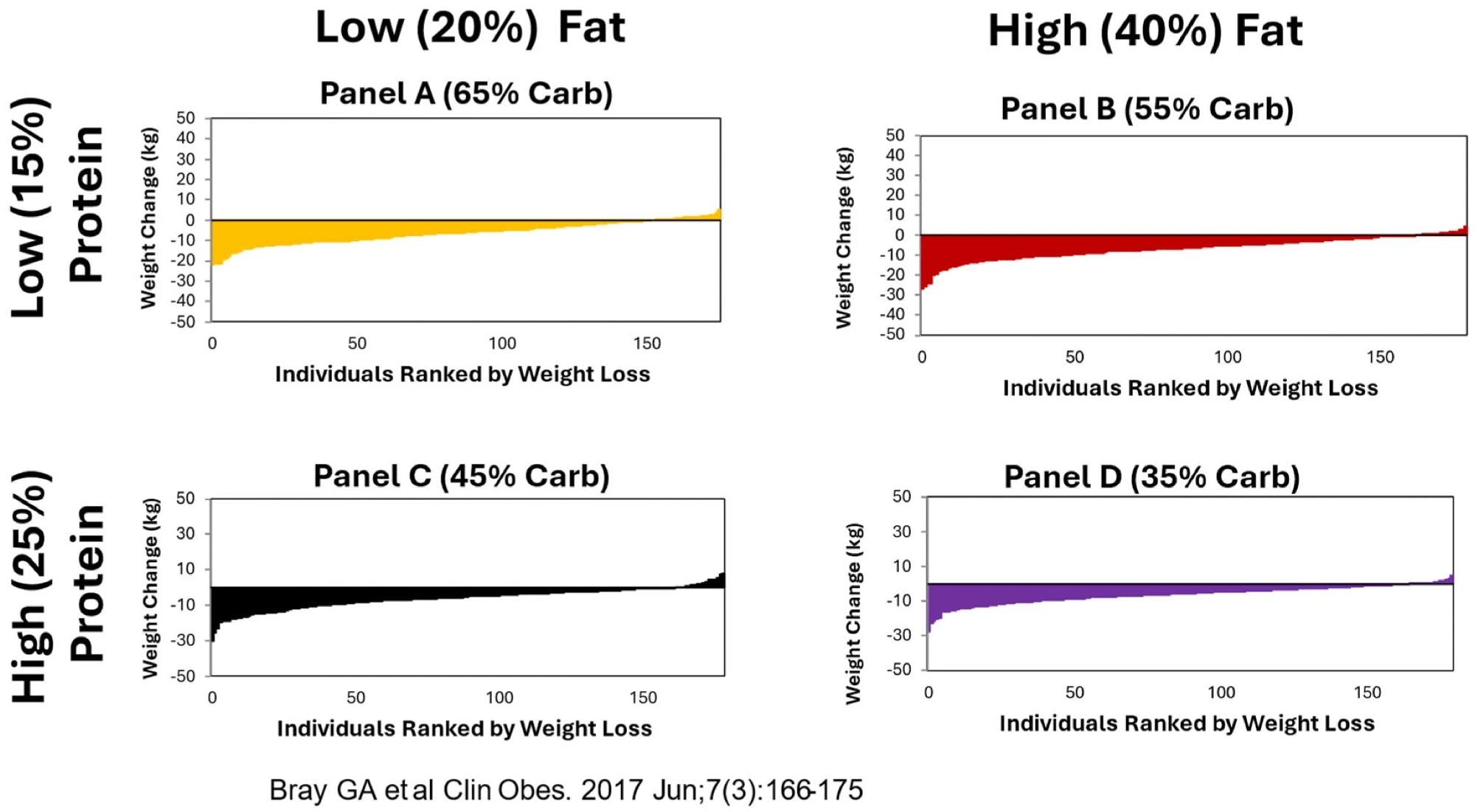Their findings indicate that weight loss was modest across all diet variations, with significant individual differences. Multiple diet strategies can be effective for weight loss, and factors such as genetics, baseline hormone levels, and lifestyle habits play a crucial role.
 Study: Is There an Ideal Diet? Some Insights from the POUNDS Lost Study. Image Credit: Inside Creative House / Shutterstock
Study: Is There an Ideal Diet? Some Insights from the POUNDS Lost Study. Image Credit: Inside Creative House / Shutterstock
Background
Dietary interventions for weight loss have been a part of medical history for centuries, with various low-calorie diets, such as high-protein, low-carbohydrate, and low-fat, capturing public interest.
The Banting diet, introduced by William Banting in 1863, is considered the first popular diet, emphasizing low carbohydrate intake. Advised by his physician, William Harvey, Banting adopted this diet after learning about Claude Bernard's research on glucose release from the liver.
Banting's diet included meat or fish, dry toast, and certain vegetables while avoiding underground vegetables, sugar, and dairy in beverages. His successful weight loss from over 200 to about 160 pounds led him to publish his dietary practices, which gained widespread popularity and multiple editions and had significant influence.
However, the existence of an 'ideal' diet and what it might include remains the subject of debate.
About the study
The POUNDS Lost study is one of the largest and longest weight-loss intervention trials, providing insights into whether an ideal diet exists. Researchers explored whether different diets result in significantly different weight loss outcomes and examined factors influencing dietary-induced weight loss.
This two-year study included 811 obese or overweight participants, aged between 30 and 70 years, with a body mass index (BMI) ranging from 25 to 40 kg/m². Researchers employed a 2x2 factorial design that compared two dietary fat levels (20% and 40%) and two protein levels (15% and 25%), resulting in four distinct diet groups with varying carbohydrate intake between 35% and 65%.
Researchers randomly assigned the participants to one of the four diets and encouraged them to maintain physical activity. The dietary interventions involved reducing calorie intake by 700 kcal/day less than their energy requirements, calculated using their resting energy expenditure multiplied by a factor of their activity levels. Body weight was measured at the start of the study and again at 6, 12, 18, and 24 months.
Adherence to the diets was monitored through 24-hour dietary recalls collected after 6 months and 24 months across half of the participants. A behavioral program was implemented consistently across all groups, and compliance was tracked via a computer system and pedometers worn by 241 participants. The study also ensured all four diets were low in saturated fat and adhered to cardiovascular health guidelines.
 Similar patterns of weight loss with each diet over 6 months.
Similar patterns of weight loss with each diet over 6 months.
Findings
Participants in the POUNDS Lost Study lost an average of six kg after six months, but many regained weight after a year. Over the two years, the average weight loss for the 80% who remained in the study was four kg.
Data analysis revealed that there were consistent average weight losses across the different diet groups. The high-protein group lost an average of 3.6 kg, while the average-protein group lost 3.0 kg. Weight loss was 3.3 kg for both the high- and low-fat diet groups.
The study found no significant differences in weight loss between the groups over two years, regardless of the macronutrient composition of the diets. However, researchers found considerable variability among participants within each diet group. Some individuals lost as much as 20 kg, while others gained weight.
Adherence to the diet was higher in the high-fat diet group than in the low-fat diet group. Behavioral adherence, however, was similar across all four groups.
The study also explored genetic factors influencing weight loss, finding that certain genes modified weight loss, fat distribution, or fat loss as a response to the diets. These gene-diet interactions highlighted the complexity of weight loss and the potential for personalized dietary interventions based on genetic makeup.
Overall, the study demonstrated that while the average weight loss was similar across different diet groups, individual responses varied significantly, indicating the need for personalized approaches to weight management.
Conclusions
The POUNDS Lost Study concluded that no single diet is ideal for everyone due to significant variability in individual weight loss responses. Genetic and non-genetic factors influence these outcomes, underscoring the need for personalized diet plans that individuals can adhere to long-term.
The study's strengths include its large sample size and robust design, while its limitations involve potential self-reporting biases and adherence challenges.
Future research should explore personalized dietary interventions considering genetic profiles and long-term adherence strategies to optimize weight loss and health outcomes across diverse populations.